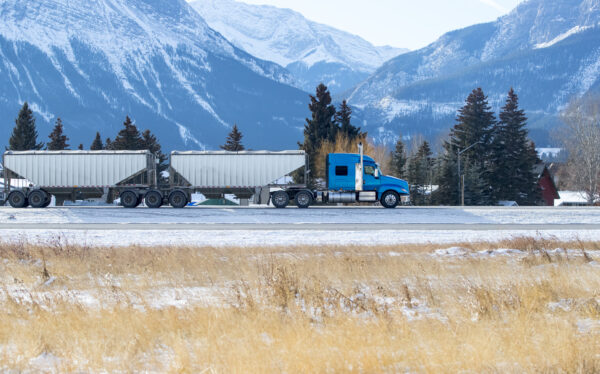New Challenges in 2024
The onset of 2024 has brought a new wave of challenges for the global supply chain, significantly impacting trucking companies. With disruptions at critical trade corridors like the Panama and Suez Canals and increasing geopolitical tensions, the landscape for trucking companies has become more complex and unpredictable. This volatility underscores the urgent need for trucking companies to leverage technology as a key tool in navigating these uncertainties.
Route Optimization Through Technology
One critical area where technology can make a significant difference is in route optimization. Advanced GPS and route planning software can enable trucking companies to quickly adapt to changing conditions, such as border closures or disruptions in trade routes. This agility is crucial in maintaining efficient operations and meeting delivery deadlines despite the unpredictable nature of current global events.
Enhancing Inventory Management with IoT and AI
Furthermore, the shift in supply chain strategies from “just-in-time” to “just-in-case” necessitates a more robust approach to inventory management. Here, technologies like IoT (Internet of Things) and AI-powered analytics can provide real-time data on cargo status and inventory levels. This real-time data allows trucking companies to respond proactively to shifts in demand and supply, adjusting their operations accordingly.
Improving Supply Chain Communication and Collaboration
Another area where technology plays a pivotal role is in enhancing communication and collaboration within the supply chain. Cloud-based platforms can facilitate seamless information sharing between trucking companies, warehouses and customers. This improved communication can lead to more coordinated efforts, helping to mitigate the impacts of supply chain disruptions.
Embracing Emerging Technologies: Drones and Autonomous Vehicles
The increasing use of drones and autonomous vehicles also presents an opportunity for trucking companies to innovate. These technologies can be used for last-mile deliveries or in areas where traditional trucking routes are disrupted. While still emerging, these technologies represent a future where logistics can be more flexible and resilient to external shocks.
Adapting to Global Trade Shifts
In addition to these technology-focused strategies, trucking companies must also consider broader changes in the global trade landscape. With shifting trade flows, such as the increasing importance of Mexico as a U.S. trading partner, companies should explore new markets and diversify their operations to reduce dependency on any single trade route or region.
Preparing for the Future
In conclusion, the current global supply chain environment demands that trucking companies not only adapt to changes but also proactively anticipate and prepare for future disruptions. Embracing technology in route optimization, inventory management, communication and innovative logistics solutions is crucial. By doing so, trucking companies can enhance their resilience, maintain efficiency and continue to play a vital role in the global supply chain amidst these uncertain times.

Analysis Paralysis in AI Adoption
Learn why endless discussions and the relentless pursuit of flawless data are actually costing you valuable time, insights, and competitive advantage – just like it did for giants like Kodak and Blockbuster.

Don’t Take Product Out of the Equation: How to Nail Your AI Implementation
AI isn't just about the technology, it's about solving real problems and delivering real value. One way to do that is to keep product at the forefront during your AI implementation. Learn more about why having a product-first mindset is so important in this article by Principal Product Strategist Heather Harris.

Navigating AI in Banking and Financial Services: A Risk-Based Rebellion for Leaders
Every shiny AI use case in regulated industries has a shadow: governance, compliance, model risk, ethics, bias, explainability, cyberattack vectors and more. It's not that organizations and leaders don’t want AI, it’s that they’re paralyzed by the political, regulatory, and operational realities of deploying it. Sparq's Chief Technology Officer Derek Perry and VP, BFSI Industry Leader Rob Murray argue we need to change that. Check out this article to learn how to actually ship production AI use cases in regulated environments.

Five Important Questions to Ask Before Your AI Implementation
Creating a lasting impact with AI requires more than just technical output. In this article by Principal Product Strategist Heather Harris, learn five questions to ask before starting an AI implementation so it can deliver long-term business value.
